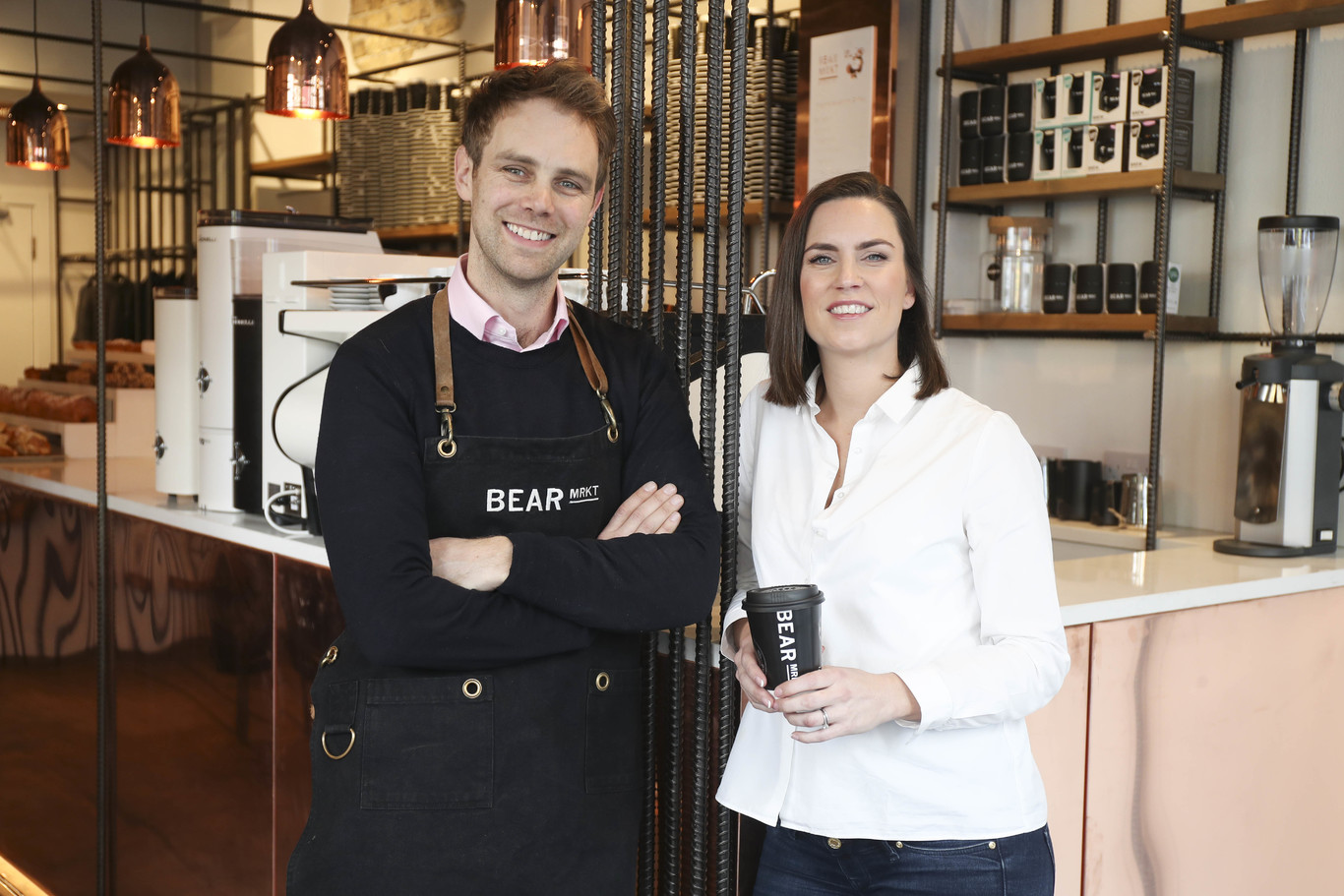Specialty coffee culture is booming in Ireland as the country catches on to a quality cup of joe
A new report cites the influx of tech workers as helping to drive up demand.
FOR STEPHEN DEASY, Ireland has gone from a tea nation to being at the pinnacle of specialty coffee in just a few years.
It is five years since he and his wife Ruth, pictured, set up their first coffee shop in Blackrock, with Deasy watching on as the public has increasingly caught on to a high end cup of joe.
Bear Market, Deasy’s business, has increased to four shops around Dublin as the company grows alongside a demand for quality.
Deasy isn’t alone. A new report by Euromonitor International pointed toward a boom in Irish coffee, which it partially attributes to an influx of European tech workers helping to drive up demand.
The report, which was released last month, measures a five-year period and shows that specialist coffee and tea shops have grown from 210 units in 2013 to 328 in 2018. There are also 133 more cafes on the scene too, taking the total to 1,645.
Sales for the period have increased by €32.1 million, to €102.5 million, for speciality coffee and tea shops and €63.4 million, to €304 million, for cafes.
Deasy believes the change he has seen is not just down to an increase in tech workers, but also to Irish people being better travelled and the growth in the industry post-recession.
“The recession got people thinking differently and made everyone question the status quo of what a secure job and it made people think that job is riskier than anything else,” he said.
“It made people question why not take the risk and led to all the roasteries, coffee shops, and restaurants that are dotted around the place now,” he added.
Now, Deasy thinks Ireland is one of the top three places in the world for its coffee offering.
Swapping lattes for flat whites
One of the big shifts he has seen is a drop in sales of drinks that have more milk.
Cappuccinos and lattes that would have accounted for 80% of all Bear Market’s coffee sales in 2014 have now dropped to 40%.
“A flat white is the most popular drink now and aside from that people are moving to filter coffee and americanos,” Deasy said.
Fast paced tech world
Frank Kavanagh, a co-founding director of Cloud Picker, said he noticed a shift in pattern in the roastery he and his partner Peter Sztal established six years ago in the north docklands.
The company – which has recently opened a coffee shop - has been supplying beans to Google and Twitter for the past six years and in that time period has noticed people’s expectations around coffee change.
“Tech-companies are quite coffee-orientated because it is a fast-paced environment and traditionally with fast-paced economies there is a higher consumption of coffee,” Kavanagh said.
He added that the public is now much more educated about different types of coffee.
“You don’t need to explain it anymore, the audience is educated and they know different methods of brewing. They know what an AeroPress is,” Kavanagh said.
“People’s taste profiles have changed a lot and they don’t mind if they get a fruity coffee that doesn’t go well with milk or sugar. Six years ago that wasn’t the case,” he added.
Educating the population
Coffeangel founder Karl Purdy is as well placed as anyone to gauge the changes in the market, having been on the Dublin coffee scene since 2004 when he set up a coffee-cart in Howth.
His company Coffeeangel now has five outlets dotted around the capital, with Purdy playing a major role in developing Ireland’s specialty coffee industry.
Purdy said that while an increase in international staff has “increased the demand” for speciality coffee, Ireland was already doing fine on its own. He and others were already producing high-end products and are “doing what we have been doing for years”.
Since starting out 15 years ago, Purdy said latte, flat white, and nespresso were not words tripping off everyone’s tongue and it took “a bit of introduction and a bit of building” to get people familiar with these coffees.
“I wanted everyone to get it. It’s still just coffee and milk, so whether you’re a grandmother, aunt or student, everybody enjoys something that tastes nice and is served with courtesy and efficiency,” Purdy said.
Sustainability and barista training
The Euromonitor report also found that independent coffee shops and teashops have also begun to increase as their sustainability messaging, offer subscriptions and training around barista skills.
These findings seem to ring true with Cloud Picker, Coffeeangel and Bear Market who all have made steps towards sustainable packaging and have incentives in place for customers to use reusable cups.
Purdy said this is not due to the influence of European tech workers but rather a growing awareness from Irish people.
“We are a small island we don’t have the bigger landfills, we can’t hide our rubbish. It’s a problem that is not going to go away … You would want to be bonkers not to see what’s happening (weather patterns) so it’s on all of us,” he said.






